University President Conrado “Bobby” Gempesaw responded to the Trump Administration’s controversial decision to repeal the Deferred Action for Childhood Arrivals program by reminding the university community that he is among hundreds of college presidents who called for the DACA program to “be upheld, continued and expanded.”
In an emailed statement on Sept. 6 sent by Internal Communications, Gempesaw referred to his own status as an immigrant to the U.S. and said, “I hope and pray that leaders in the federal government will negotiate and pass a comprehensive immigration reform that will provide a fair, just and timely path forward for all those registered under the DACA program and for all those still living in fear in the shadows of our society.”
Gempesaw added that this year St. John’s is marking the 400th anniversary of the Vincentian charism that is themed “Welcome the Stranger.” “It is,” Gempesaw added, “a fitting reminder of what our University stands for and our moral obligation to help those most in need.”
Gempesaw called on the University community “to draw strength from our founding mission to be a place for immigrants and their children to attain a quality education,” and said that the University will continue to monitor the status of the repeal to determine how best to “respond and support those impacted by the decision.” He encouraged students with questions to contact Student Affairs.
On Sept. 5 President Trump and Attorney General Jeff Sessions announced that DACA will be rescinded. Sessions said that a “wind-down process” of the program will be taking place, as well as a six-month period for Congress to pass a replacement for it.
“We cannot admit everyone who would like to come here, it’s just that simple,” Sessions said during the announcement.
According to the Department of Homeland Security, DACA was established by the Obama administration on June 15, 2012, allowing certain undocumented immigrants who entered the U.S. before the age of 16 “a period of deferred action as well as eligibility to request employment authorization.”
According to a U.S. Citizenship and Immigration Services (USCIS) report, over 790,000 undocumented immigrants have obtained work permits and received deportation relief through DACA since it was implemented; only those who have not committed any crimes and were under the age of 31 as of June 15, 2012 qualify for the program.
Those whose DACA permits will expire between now and March 5, 2018 must renew their status by Oct. 5, while new applications are no longer being considered.
The majority of DACA recipients’ country of origin is Mexico, followed by El Salvador, Guatemala and Honduras, according to USCIS data.
Gempesaw, in his emailed statement to the University community, said the 800,000 DACA beneficiaries “have already been vetted by a rigorous application process and have resided in this country since 2007. They have been, and continue to be, contributing members of society. Many are exemplary scholars, student leaders and some even serve with distinction in the armed forces and pay the ultimate sacrifice for our country.”
Some student leaders on campus said they believe the University can do more to reassure students concerned about their immigration status.
“I think the ideal way to go about this situation is to make these students feel like they are secure in the university that they chose, that their school will do everything in their power to protect them,” said Sieta Leon, a junior and vice president of the Latin American Student Organization (LASO).
Chantel Ybarra, senior and secretary of LASO, agreed with Leon, but also referred to the letter as “a great first step.” She suggested that the University release another statement openly reassuring affected students that it is taking steps to protect them.
Social Justice Exchange (SJE), a new group on campus, criticized Gempesaw’s statement by saying, “it isn’t enough to say that they’re going to ‘monitor the situation’ or ‘hope and pray’ for reform.” SJE said the University is obligated to honor its Vincentian values in taking action for those in need.
SJE suggested several additional measures the University could take, such as: joining students in a campus-wide protest of the repeal; offering free services to local community members who need to renew their DACA status; sending a mass email outlining the rights of undocumented students, as well as offering training sessions for students on how to “effectively contact and lobby government officials.”
The University has offered support resources to students who are concerned since the fate of DACA first came into question after Trump was elected last November.
According to Vice President of Student Affairs Kathryn Hutchinson, those resources can be found within an “Immigration Resources” portal on MySJU, which can be accessed by students on the bottom-right area of the “Campus Life” tab, and by faculty and administrators on their “How Do I” tab. The portal features assistance from organizations such as Catholic Legal Immigration Network, the Immigration Defense Project and New York State Office for New Americans.
It also features “practical” guidelines from Catholic Charities Community Services’ Immigration and Refugee Services Division. Hutchinson added that this information was updated on the same day the DACA repeal was announced.
Hutchinson added that the President’s Multicultural Advisory Committee–which co-sponsored a panel of experts on immigration and DACA last December–is currently organizing educational events to help the St. John’s community understand the Trump Administration’s repeal of DACA.
Hutchinson said the effort to provide resources to students is an ongoing collaboration between the University, Catholic Charities and faculty within the law school. This includes C. Mario Russell, who is director of Catholic Charities New York’s Immigrant & Refugee Services Division and also an adjunct law professor at St. John’s.
Hutchinson referred to an email she sent to the University community via Internal Communications on Nov. 28, 2016, which highlights the University’s “current practices concerning immigration.” Hutchinson said the practices cited in that email, and stated below, are still applicable today:
The University is not required to, and therefore does not, track the immigration status of our students.
Immigration status is not taken into consideration when making decisions regarding housing, registration or other University processes.
Our public safety officers are engaged in campus safety; they are not law enforcement officers and are not directed by immigration or other enforcement agencies.
”It is so important for students to have the necessary information to understand the changes in DACA, to know their rights, and to use the resources available to ensure they find good legal counsel if that is what they are seeking,” Hutchinson said, who also serves as co-chair of the President’s Multicultural Committee along with Vice Provost for Academic Support Services and Faculty Development Andre McKenzie.
Hutchinson also expressed concern about students falling prey to scams in which unqualified people claim to be legal representatives and charge exorbitant fees for their services, which has arisen since President Trump’s announcement last week. She encouraged students to take advantage of the University’s resources as a first step.
“I am concerned about the anxiety and fear the repeal of DACA has created and encourage students to seek out internal and external support services to assist them,” Hutchinson said. “As a Catholic and Vincentian University, we respect the rights and dignity of each person and what they contribute to the larger St. John’s family. We will continue to support all of our students as full members of the St. John’s community.”
Hutchinson added that students who are concerned or anxious about the repeal of DACA can seek help from the University’s Center for Counseling and Consultation and Campus Ministry, as they are equipped to provide emotional support.












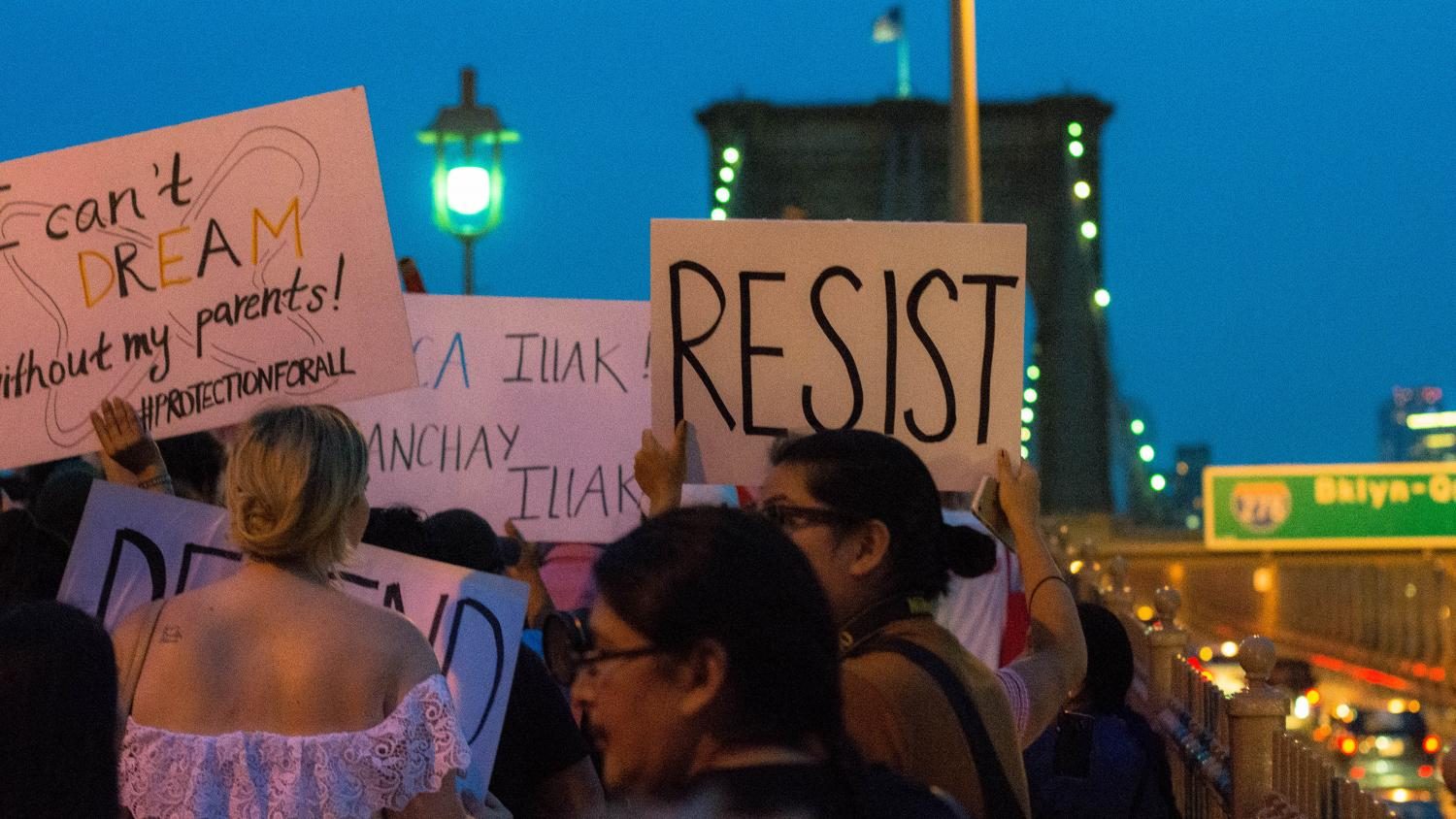







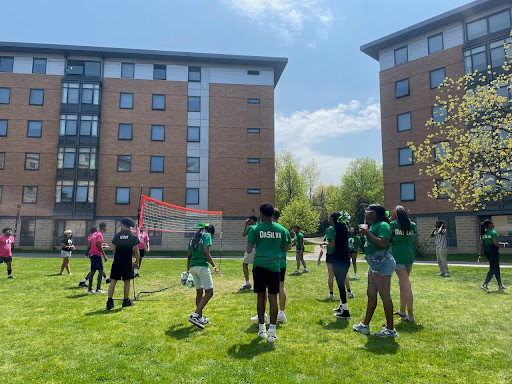
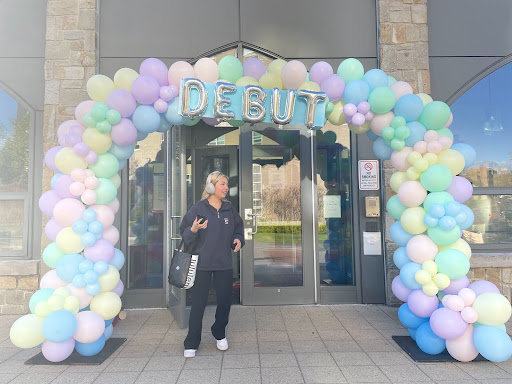
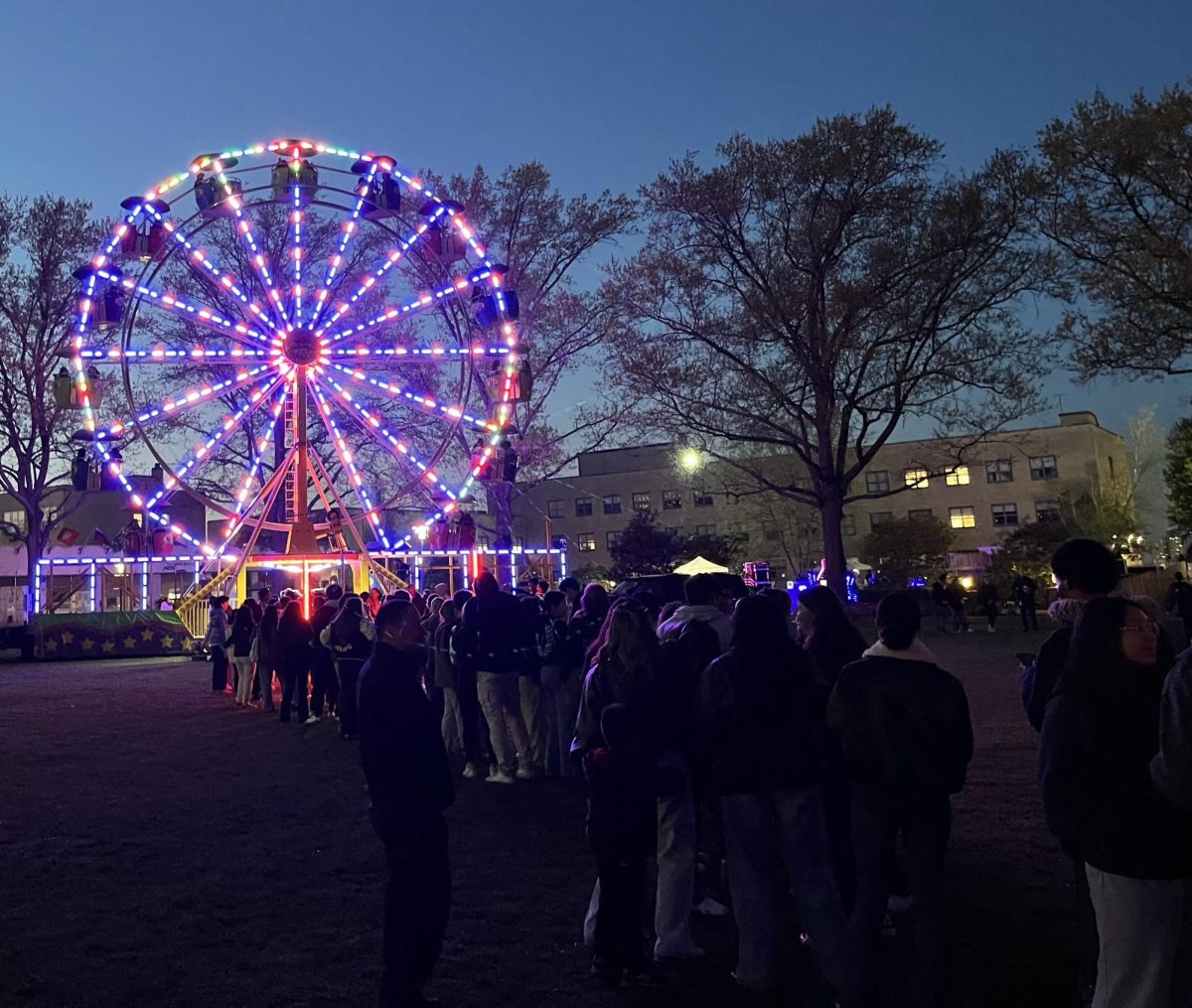
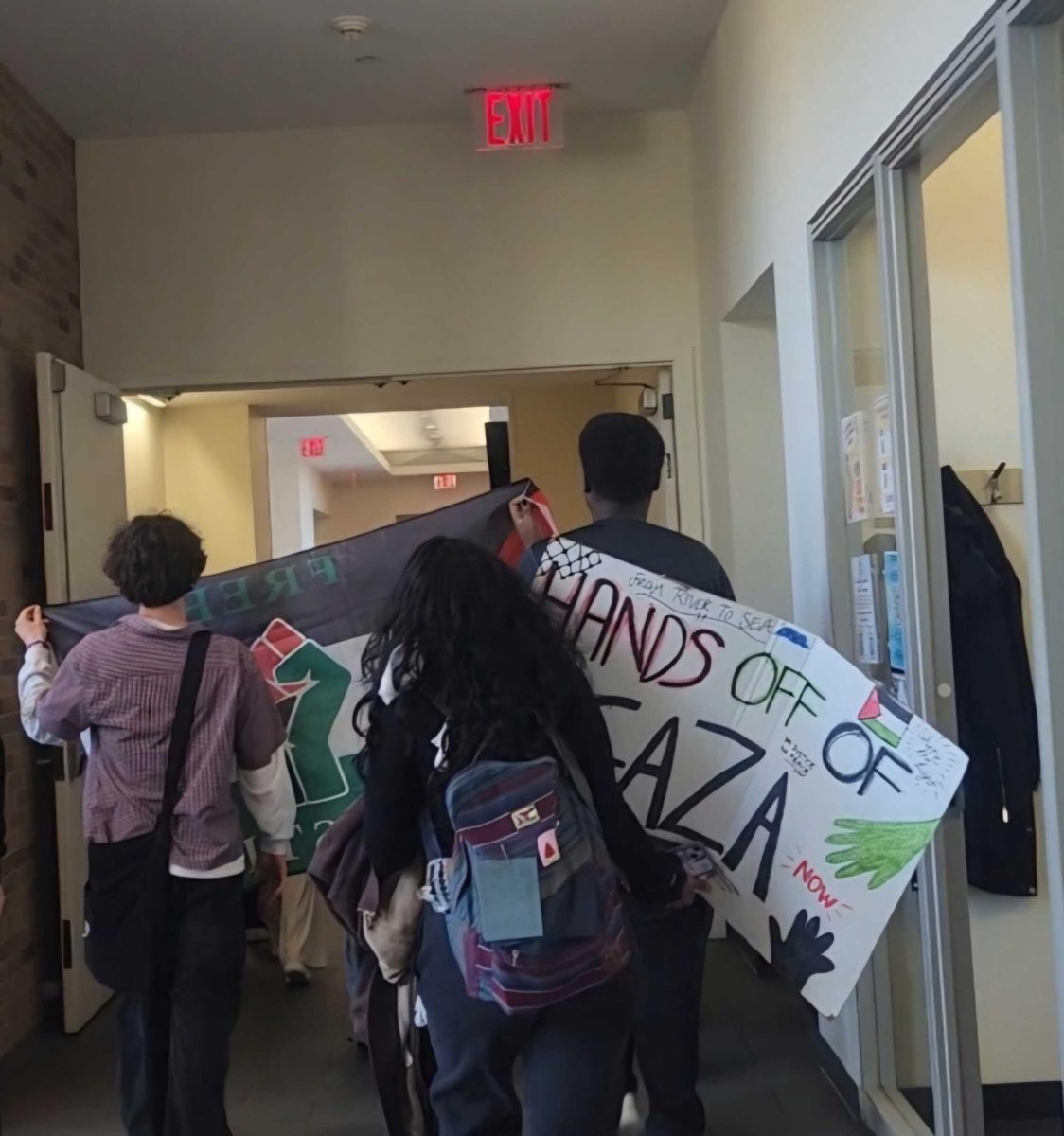
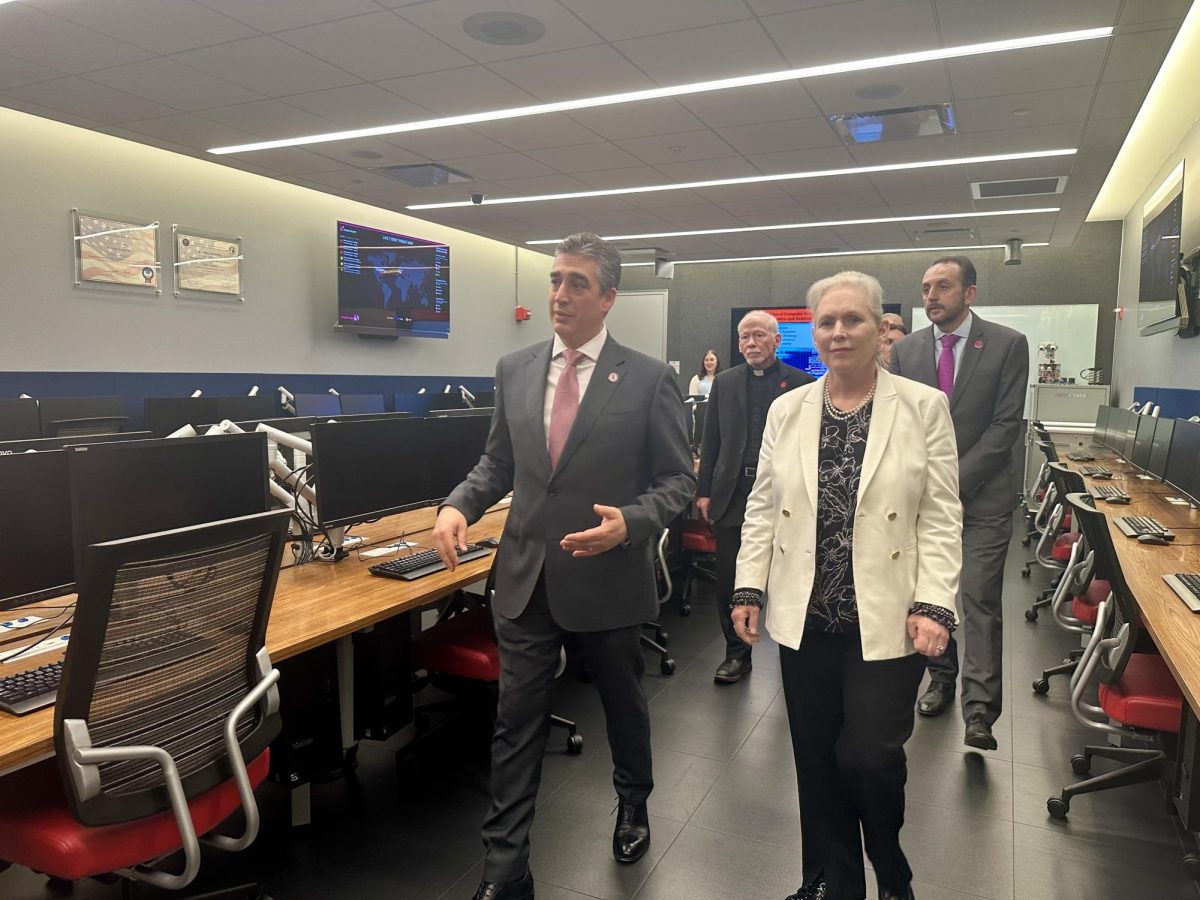
Prof Asher J Matathias • Sep 14, 2017 at 1:51 pm
It’s with gladness of heart that I read Ariana Ortiz’s lead story in the current edition of The Torsch, “Welcome the Stranger.” Along with our president, Dr. Conrado Gempesaw, I, too, commiserate with the acute and totally unnecessary anxiety our DACA students experience as they begin to navigate a new terra incognita — the adult challenge now confronted for having arrived as undocumented children to the United States decades ago! Truth be told, immigrants/refugees arrive today, the way I (then a 12-year-old), and our family did in 1956: severely vetted and in our home country of Greece. We were survivors of the Holocaust of Greek-Jewry — I having been born in a cave, 12/3/43, hiding from the hounding German Reich — and in the mid-’50’s of catastrophic earthquakes. The Joint Distribution Committee and Hebrew Immigrant Aid Society sponsored us, but the U.S. Government was repeatedly on the ground, over there, investigating our background: loyalty to liberal democracy (this was the Cold War, after all), police ledger, economic solvency, our health, and potential for us to be productive citizens, were all factored into our acceptance for admission. It pains me to realize that the DACA rejection is directed by a Chief Executive and his Attorney General who perceive the 80% of Mexicans, and Central Americans being affected to be less desirable than those they consider an endangered species — white, European, affluent, educated, certainly non-Muslim. It’s one thing to have such prejudices vocalized by the ignorant, intolerant, and bigoted; it’s unnerving when voiced by adherents of the 34% of our President’s hard-core backers. Makes me wonder: does turning against our American values of compassion, magnanimity, in Ariana’s headline to Welcome the Stranger, make America great again? Are we ready to cede the scepter as a nation of immigrants to others, say, Canada? Just askin’ and bemoan, as also a member of the United States of (acute high) Anxiety.